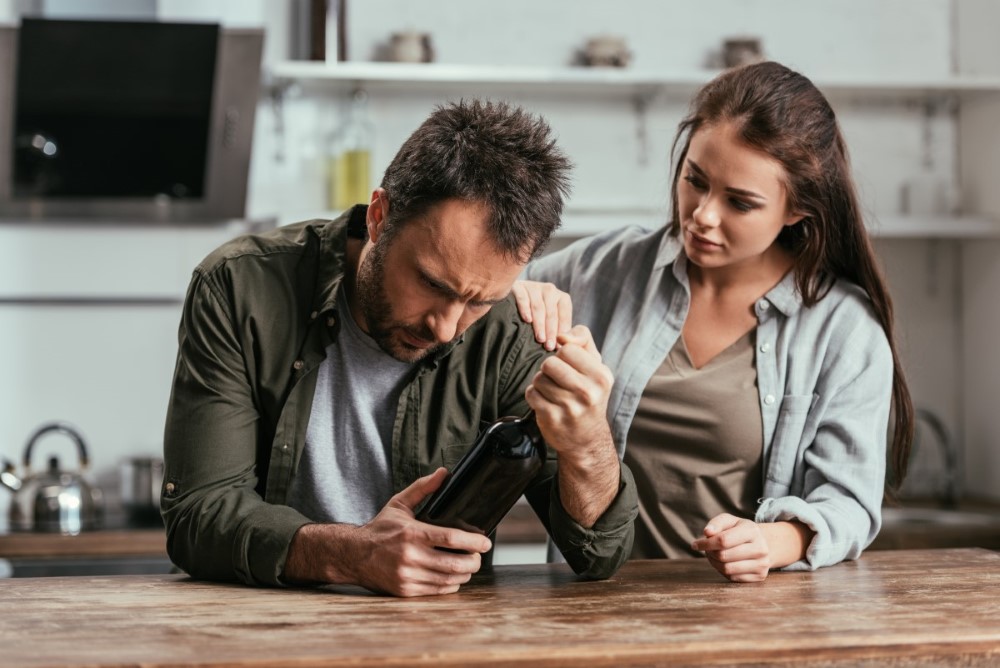Getting sober is supposed to fix everything, right? That’s the fantasy many people hold on to, that once the substance is gone, life will suddenly feel lighter, calmer, more complete. But what happens when you stop using, stop lying, stop running… and still feel awful? When the hangovers end but the emptiness doesn’t? When the world celebrates your recovery, but inside you feel broken in ways you can’t explain?
That’s emotional relapse, the stage of recovery few people talk about because it doesn’t fit the wellness narrative. You’re doing all the right things, attending meetings, posting inspirational quotes, drinking green juice, but you’re still anxious, resentful, disconnected. The high is gone, but the hunger isn’t. You’ve removed the drug, but not the wound.
The Trap of “Better”
Sobriety has become a cultural currency. The wellness industry sells it as a lifestyle upgrade, cold plunges, mocktails, yoga, productivity hacks. It promises clarity, purpose, and glowing skin. But true recovery has little to do with aesthetics and everything to do with honesty.
You can quit drinking and still be driven by the same fear that made you drink. You can stop using and still chase dopamine through work, relationships, shopping, or self-improvement. Emotional relapse is what happens when the addiction shape-shifts, when you stop the behavior but keep the mindset.
The trap of “better” is subtle. You replace chaos with control, substances with spirituality, avoidance with achievement. On the outside, you’re thriving. On the inside, you’re just addicted to appearing healed.
What Emotional Relapse Really Is
Relapse isn’t just about picking up again. It starts long before that, in thoughts, emotions, and habits. Emotional relapse happens when the emotional foundation of your recovery begins to crumble while your behavior still looks fine. You start isolating, overworking, or numbing with distraction. You lose interest in the things that once grounded you. You get irritated easily, start blaming others, or feel empty for no obvious reason. You might even resent recovery itself, the routines, the expectations, the constant self-reflection.
It’s not about weakness or lack of willpower. It’s about emotional exhaustion, the toll of staying hypervigilant against relapse while still carrying unhealed pain. Your body is sober, but your nervous system is still addicted to chaos.
When Sobriety Becomes Another Addiction
The wellness culture has turned sobriety into performance. Social media is flooded with people documenting their recovery journeys, day counts, before-and-after photos, mantras about self-love. And while sharing can be empowering, it can also turn recovery into another competition. You start chasing milestones instead of meaning. You measure worth by how well you “do” sobriety, how disciplined, spiritual, or “zen” you appear. Relapse becomes taboo, struggle becomes failure, and honesty becomes risky.
This performative recovery traps people in shame. They replace one addiction with another, the addiction to perfection. The same self-hatred that fueled substance use now fuels self-optimization. You can be sober and still completely enslaved, to your image, your habits, your need to prove you’re okay.
The Body Keeps Craving What the Soul Never Got
Emotional relapse is the body’s way of revealing what you never healed. You can’t white-knuckle your way through trauma. The nervous system doesn’t forget, it just waits. Many people in early recovery mistake control for healing. They structure every hour, overanalyze every feeling, and avoid anything that might trigger them. But control is just another form of fear. It keeps you safe, but it also keeps you stuck.
The human body stores pain, in muscle tension, fatigue, anxiety, restlessness. Even after years of sobriety, unprocessed trauma can resurface as panic attacks, nightmares, or sudden emotional numbness. It’s not relapse, it’s residue. Sobriety clears the noise so the pain finally has space to speak.
The real challenge isn’t staying sober. It’s learning to sit in your body again, without running, numbing, or fixing.
The Lies We Tell in Recovery
“I’m fine.” “I’m grateful.” “It’s all part of the process.”
These are the lies of the emotionally relapsing. They sound healthy, even enlightened, but often mask disconnection. Recovery culture, especially online, can pressure people into relentless positivity. You’re expected to be grateful for your pain, to romanticize growth, to find meaning in every wound. But sometimes recovery is just ugly. Sometimes it’s grief without clarity, loneliness without lesson. And pretending otherwise is a form of denial.
Emotional honesty means admitting that sometimes you hate this process. That you miss the escape. That you envy people who can drink “normally.” That you’re tired of being good. Those truths don’t make you weak, they make you real. And real is what recovery actually demands.
When Healing Becomes Hustle
In the age of wellness, even healing has become a hustle. We meditate to perform calm, journal to optimize mindset, and exercise to control anxiety rather than feel our bodies. We turn self-care into self-management.
Emotional relapse hides inside these good habits. You can meditate every day and still avoid yourself. You can be obsessed with health but terrified of stillness. You can know every recovery quote by heart and still feel spiritually bankrupt.
The difference between wellness and recovery is motive. Wellness asks, “How can I feel better?” Recovery asks, “What am I avoiding?” One chases relief. The other demands truth.
The Cracks in the Armor
The problem with emotional relapse is that it looks like success. You’re showing up, doing the work, staying clean. But something’s off. You feel detached, cynical, or restless. You start judging others who are still using, not from compassion, but superiority. You convince yourself you’ve outgrown your pain, but it’s still running the show. These cracks often appear before a full relapse. The bitterness, the boredom, the quiet resentment toward the very structure that’s saving you, those are red flags. They mean your emotional world hasn’t caught up to your physical recovery.
If untreated, emotional relapse becomes spiritual depletion. You start to wonder what the point of staying sober even is if you still feel this way. That thought alone is the beginning of the slide.
What Healing Actually Requires
Real recovery isn’t about perfection. It’s about integration, bringing the messy, broken parts of yourself into the light instead of trying to outgrow them. Sobriety is only the first step; healing is the lifelong one. You can’t heal by replacing one obsession with another. You can’t heal by hiding behind structure. You heal by learning to live without the illusion of control, to feel sadness without drowning, to feel joy without fear, to feel boredom without escape.
That means therapy, not just affirmation. Honesty, not just gratitude. Relationships that challenge you, not just comfort you. Recovery requires community, people who see through the performance and call you out with love.
Emotional sobriety isn’t built on willpower. It’s built on humility, the willingness to keep learning even when you thought you were healed.
The Danger of “Forever Recovery”
In the wellness age, recovery often gets packaged as a final transformation, a “new you.” But healing isn’t a rebrand, it’s a relationship. And like any relationship, it fluctuates. You don’t stay “recovered”, you stay in recovery. You don’t become invincible, you become aware.
Emotional relapse reminds you that healing isn’t linear. You can be ten years sober and still fall into old emotional traps, codependency, people-pleasing, control, resentment. The goal isn’t to never fall, it’s to recognize the fall sooner.
You’re not failing if you feel lost. You’re human. The fact that you notice the shift means you’re awake enough to steer back.
The Return to Honesty
If emotional relapse is built on denial, recovery from it begins with confession. Saying out loud: “I’m sober, but I’m not okay.” That single truth has the power to save lives.
Because emotional relapse thrives in isolation. The minute you break that silence, in therapy, a meeting, or even with one trusted friend, the cycle starts to lose power. Honesty doesn’t fix everything, but it reconnects you to reality. And reality is where recovery lives.
The irony of the wellness era is that it celebrates vulnerability but punishes imperfection. Real recovery does the opposite, it allows imperfection to be sacred.
Learning to Feel Again
The hardest part of sobriety isn’t saying no to substances; it’s saying yes to feeling. Emotional relapse happens when you forget that discomfort isn’t danger. Feeling anxious, sad, or restless doesn’t mean you’re failing, it means you’re finally alive again. The work of recovery is to stay present through those feelings instead of escaping them. To let the waves crash and realize they pass. To stop expecting peace to feel good all the time, because sometimes, peace just feels quiet.
You don’t have to chase wellness to be well. You don’t have to perform gratitude to be grateful. You just have to be honest, even when that honesty is ugly.
The New Definition of Recovery
Maybe recovery isn’t about becoming pure, peaceful, or permanently happy. Maybe it’s about becoming whole, someone who can hold both pain and progress, both serenity and struggle. You don’t fail recovery when you feel bad. You fail it when you start pretending again. Emotional relapse isn’t a sign that you’ve lost your way, it’s a sign that you’re ready to go deeper.
Healing doesn’t always look like glow-ups and affirmations. Sometimes it looks like crying in a parked car, feeling everything you used to numb, and realizing that even this, this pain, this honesty, is progress.
Meta Title: Sober but Still Sick: Emotional Relapse in the Age of Wellness
Meta Description: You can quit substances and still be sick inside. Emotional relapse hides beneath wellness culture, discover how to spot it, face it, and find real healing beyond sobriety.




